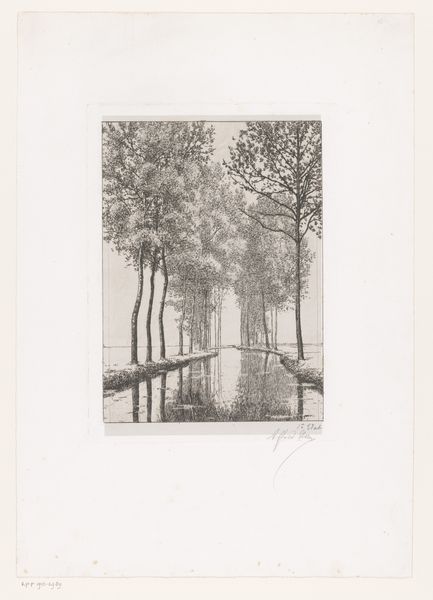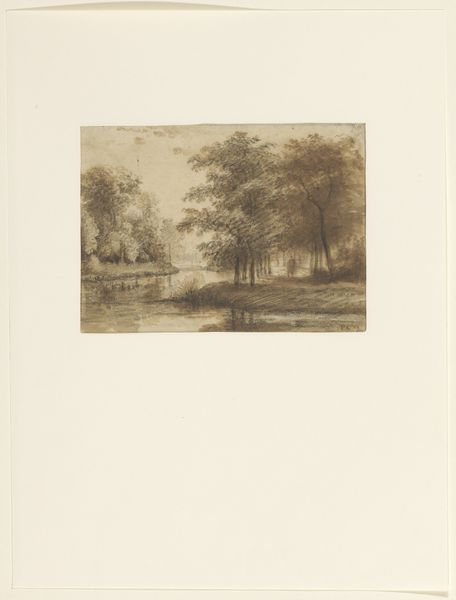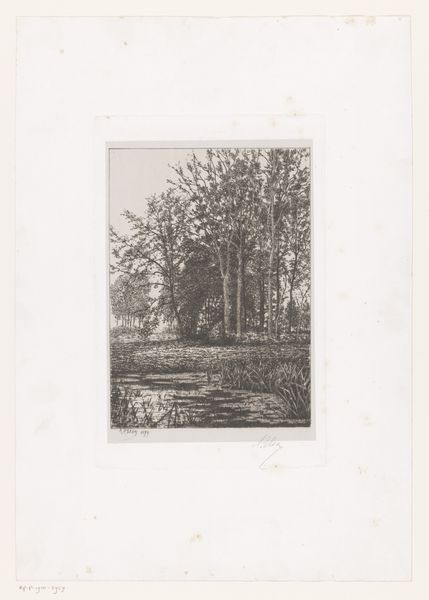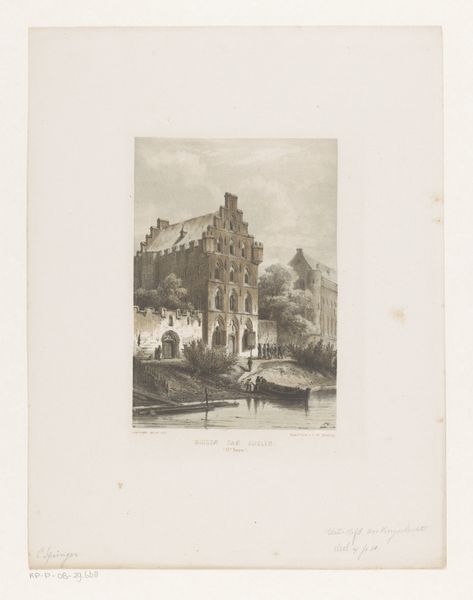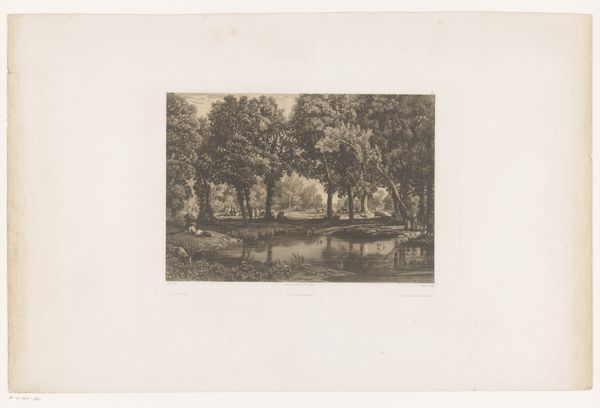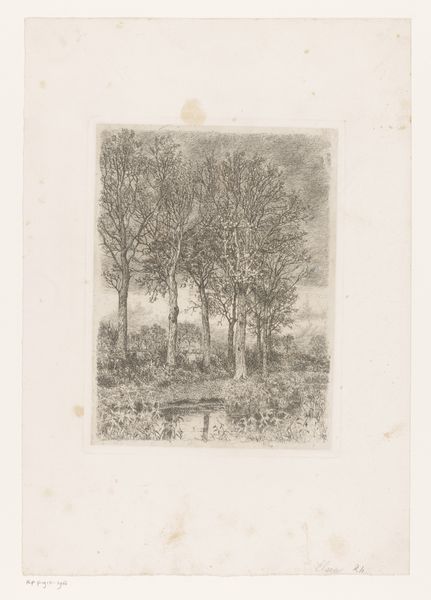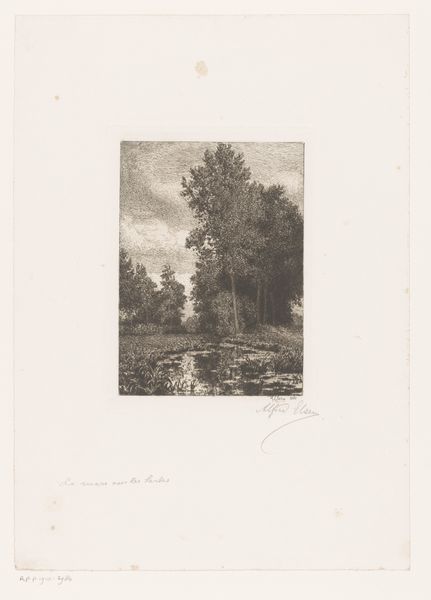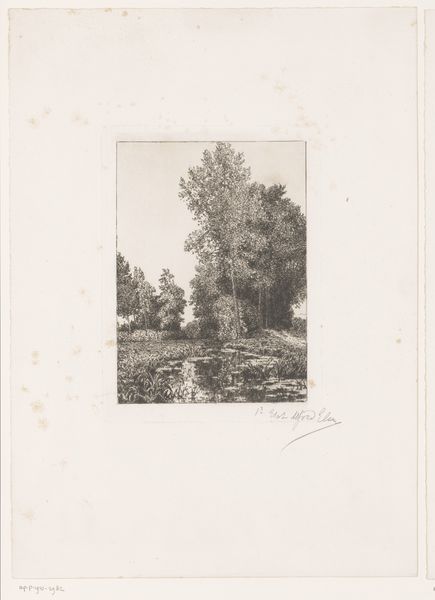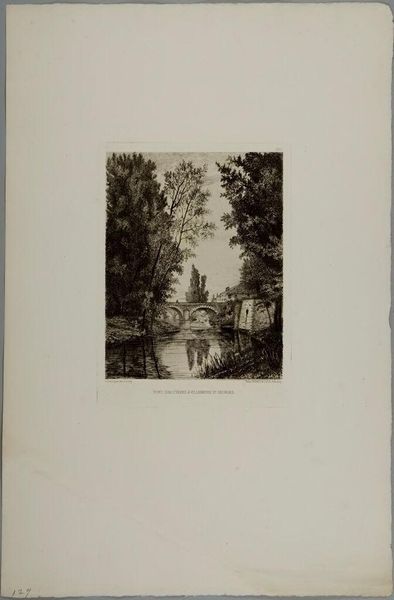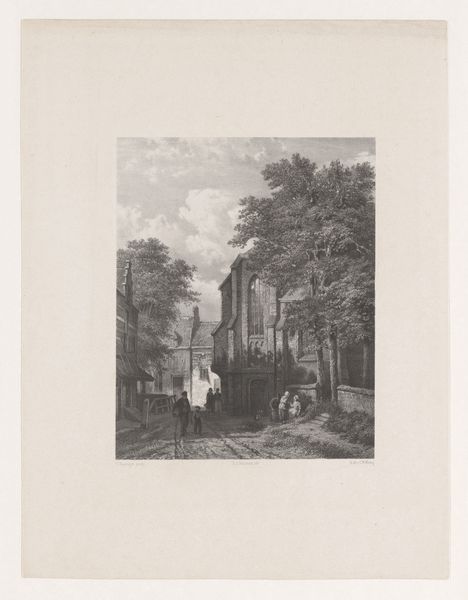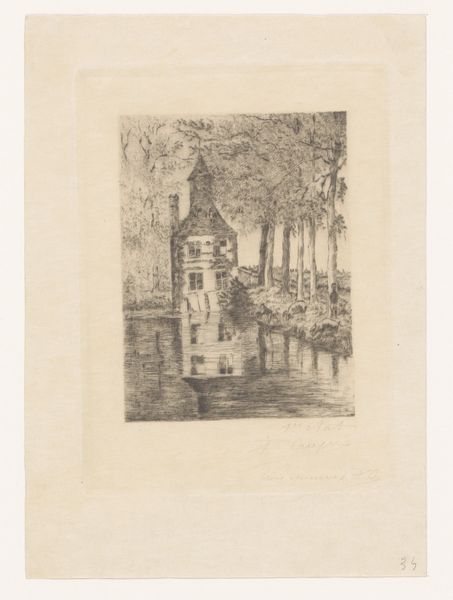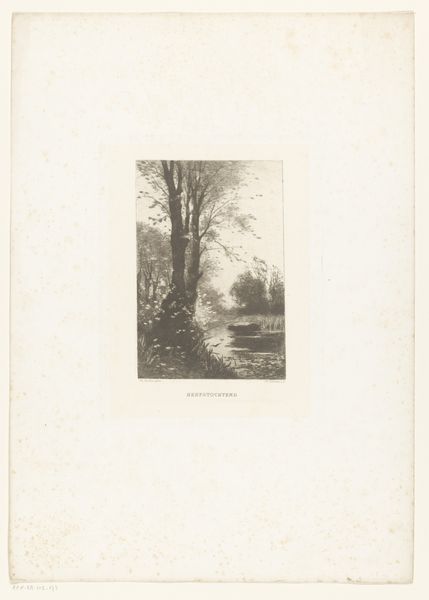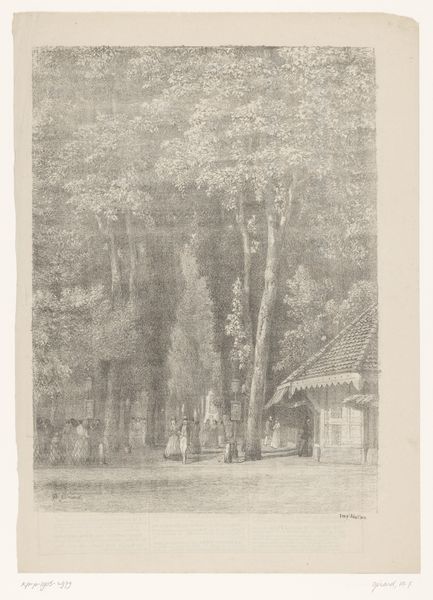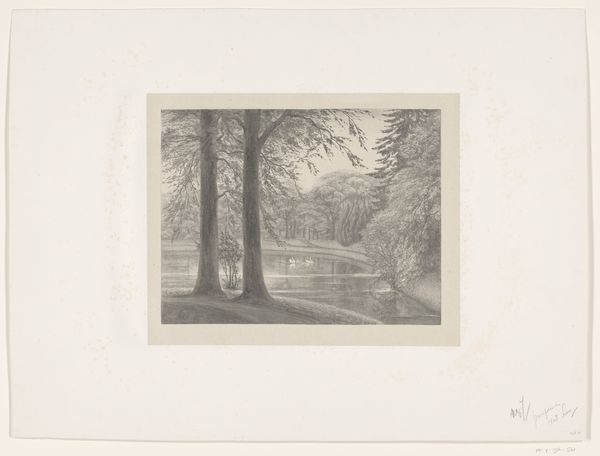
drawing, print, etching
#
drawing
# print
#
etching
#
landscape
#
river
#
realism
#
monochrome
Dimensions: height 269 mm, width 200 mm
Copyright: Rijks Museum: Open Domain
Alfred Elsen made this landscape with a river using etching, a printmaking technique that dates back to the 16th century. The image is defined by the marks created on a metal plate with acid. To create the print, Elsen would have coated a metal plate with a waxy, acid-resistant substance. The image was then scratched into this coating with a needle, exposing the metal underneath. When the plate was dipped in acid, the exposed lines would be eaten away, creating grooves. Ink was then applied to the plate, filling these grooves, and the surface was wiped clean. Finally, paper was pressed against the plate, transferring the ink and creating the image. The resulting print has a unique quality, with the etched lines giving a sense of depth, texture, and tone. Etching allowed artists to create multiple copies of their work, making art more accessible in a rapidly industrializing society. Appreciating the time and hand-skill that went into creating this print enriches our understanding and appreciation.
Comments
No comments
Be the first to comment and join the conversation on the ultimate creative platform.
